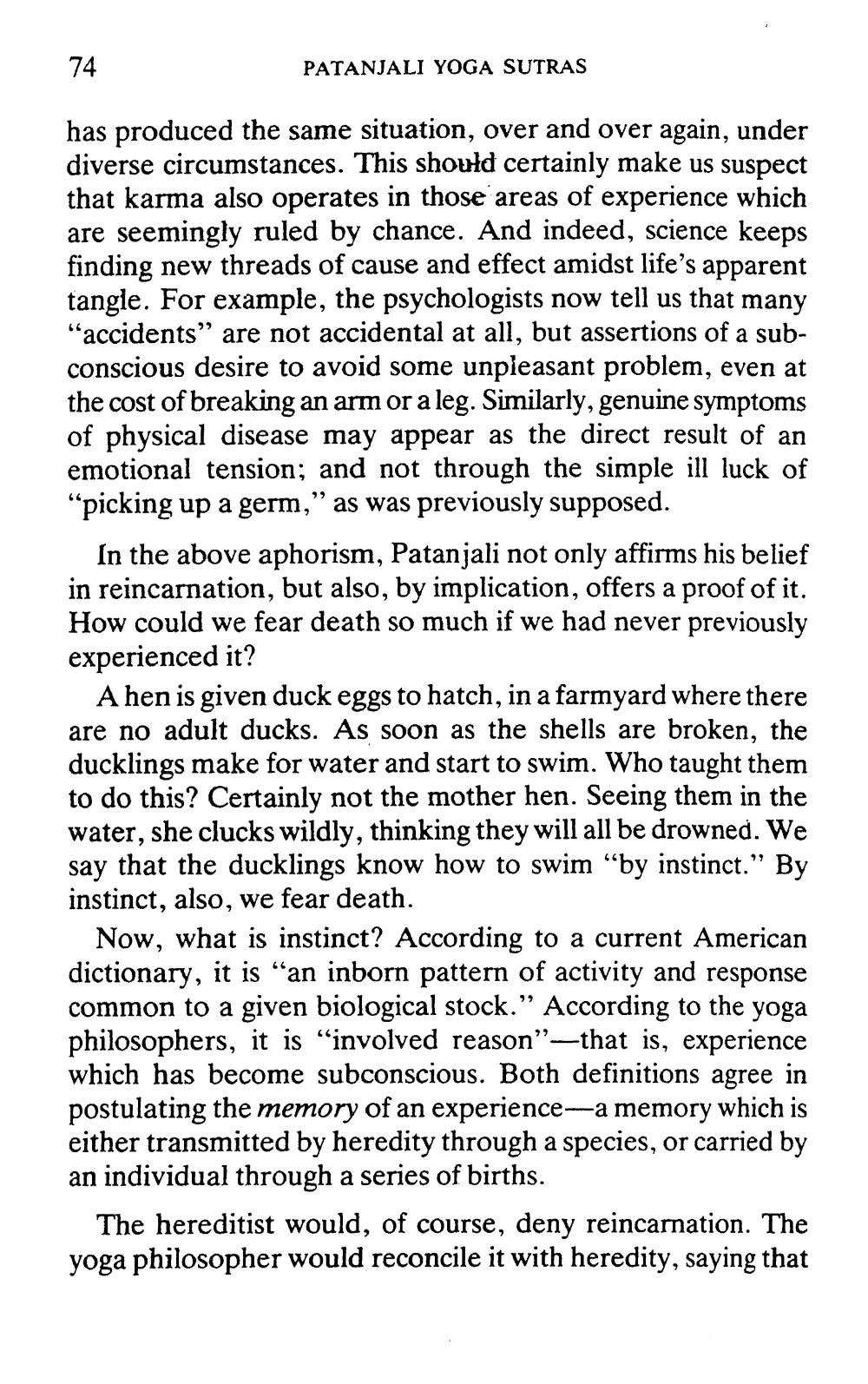________________
PATANJALI YOGA SUTRAS
has produced the same situation, over and over again, under diverse circumstances. This should certainly make us suspect that karma also operates in those areas of experience which are seemingly ruled by chance. And indeed, science keeps finding new threads of cause and effect amidst life's apparent tangle. For example, the psychologists now tell us that many "accidents” are not accidental at all, but assertions of a subconscious desire to avoid some unpleasant problem, even at the cost of breaking an arm or a leg. Similarly, genuine symptoms of physical disease may appear as the direct result of an emotional tension; and not through the simple ill luck of "picking up a germ,” as was previously supposed.
In the above aphorism, Patanjali not only affirms his belief in reincarnation, but also, by implication, offers a proof of it. How could we fear death so much if we had never previously experienced it?
A hen is given duck eggs to hatch, in a farmyard where there are no adult ducks. As soon as the shells are broken, the ducklings make for water and start to swim. Who taught them to do this? Certainly not the mother hen. Seeing them in the water, she clucks wildly, thinking they will all be drowned. We say that the ducklings know how to swim “by instinct.” By instinct, also, we fear death.
Now, what is instinct? According to a current American dictionary, it is an inborn pattern of activity and response common to a given biological stock.” According to the yoga philosophers, it is “involved reason”—that is, experience which has become subconscious. Both definitions agree in postulating the memory of an experience a memory which is either transmitted by heredity through a species, or carried by an individual through a series of births.
The hereditist would, of course, deny reincarnation. The yoga philosopher would reconcile it with heredity, saying that




